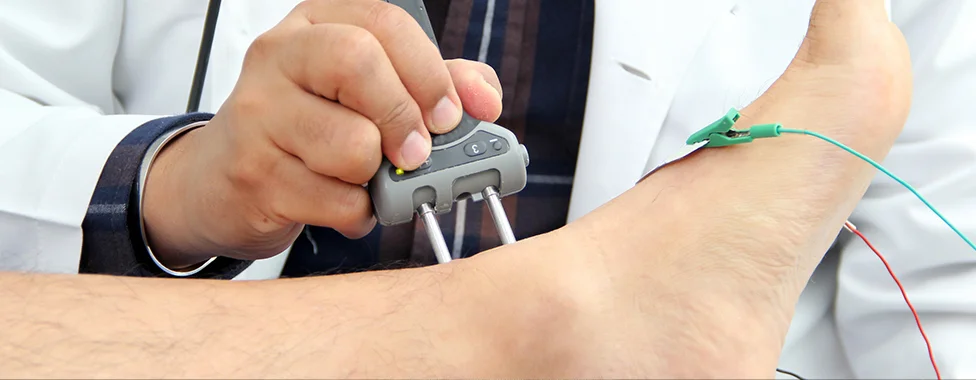Electromyography (EMG) and Nerve Conduction Studies (NCS) are fundamental neurophysiological tests used to assess the functionality of muscles and peripheral nerves in clinical practice. EMG involves the placement of small electrodes into specific muscles to record their electrical activity, enabling the evaluation of neuromuscular disorders, such as peripheral neuropathies, myopathies, and radiculopathies. The test provides valuable insights into muscle health, identifying abnormal electrical patterns indicative of nerve damage or muscle dysfunction. NCS, on the other hand, measures the speed and strength of electrical signals as they travel along peripheral nerves, aiding in the diagnosis of conditions like carpal tunnel syndrome, nerve compressions, and peripheral neuropathies. By assessing nerve conduction velocity and amplitude, NCS assists in localizing and characterizing nerve injuries or diseases. The combined use of EMG and NCS allows clinicians to pinpoint the source of neurological abnormalities accurately, guiding treatment decisions and facilitating optimal patient outcomes.
Electromyography (EMG) and nerve conduction studies (NCS) are diagnostic tests that help healthcare professionals understand how muscles and nerves are functioning. EMG involves placing small electrodes on the skin or into muscles to record their electrical activity, providing insights into muscle health and identifying potential issues like muscle disorders or nerve damage. NCS, on the other hand, measures the speed and strength of electrical signals as they travel along nerves, aiding in diagnosing conditions like carpal tunnel syndrome or peripheral neuropathy. Together, EMG and NCS help healthcare providers pinpoint the source of pain, weakness, or numbness, enabling accurate diagnosis and effective treatment planning to improve a patient’s overall well-being.






